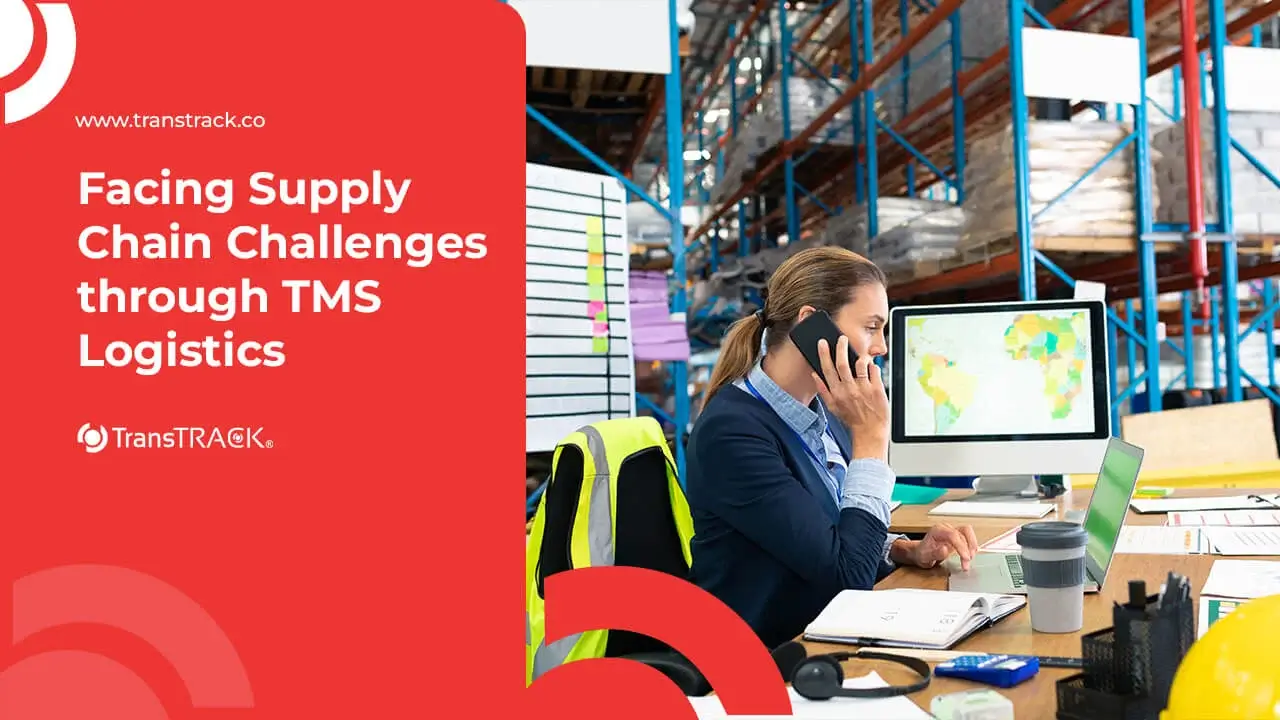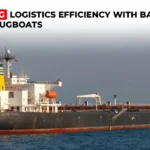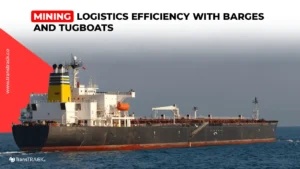Facing Supply Chain Challenges through TMS Logistics
Posted on September 29, 2025 by Nur Wachda Mihmidati

In an increasingly competitive logistics and supply chain landscape, speed and efficiency are no longer just advantages – they are essentials. Growing shipment volumes, complex distribution routes, and customer demands for real-time service require companies to adapt with smart technology.
This is where Transportation Management System (TMS) plays an important role. By integrating transportation planning, execution, and monitoring in a single platform, TMS helps companies optimize costs, improve shipment visibility, and ensure customer satisfaction is maintained.
Through this article, you will understand how a TMS-specifically TransTRACK TMS-can be a strategic solution to modern logistics challenges and drive sustainable business growth.
The role of TMS in supply chain & logistics
In an increasingly complex supply chain ecosystem, transportation management is not just about moving goods from point A to point B. It requires a system capable of integrating planning, execution, and monitoring to keep the flow of goods efficient and transparent. It requires a system capable of integrating planning, execution, and monitoring to keep the flow of goods efficient and transparent. Transportation Management System (TMS) comes as a key solution to ensure a smooth process.
Here are the important roles of TMS that support logistics operations as a whole:
1. Delivery Planning and Optimization
- Selecting the most efficient route to reduce fuel costs and travel time.
- Determine the best mode of transportation (land, sea, air, rail) according to cost and SLA requirements.
2. Execution Management
- Manage tendering and vendor/fleet selection process.
- Provide shipping documents (bills of lading, B/L) automatically.
- Monitor shipment status in real-time.
3. Visibility and Tracking
- Provides real-time information on the position of goods/fleet.
- Facilitates anticipation of delays and risk management.
4. Integration with Supply Chain
- Connect with ERP/WMS system to synchronize order and inventory data.
- Ensure the flow of goods from suppliers to consumers runs smoothly.
5. Analytics and Reporting
- Provide transportation performance reports: cost, punctuality, fleet utilization.
- Support data-driven strategic decisions.
Key Functions of TMS Logistics
In the fast-paced logistics industry, transportation efficiency is key to reducing costs and maintaining on-time delivery. Transportation Management System (TMS) is here to automate critical processes while providing full visibility into every stage of distribution.
Its key functions include:
- Transportation Planning Determine the most efficient mode, schedule, and fleet capacity according to delivery needs.
- Delivery Tracking Monitor the position of goods in real-time to ensure timeliness and anticipate delays.
- Route Optimization Calculates the best route based on distance, traffic conditions, and fuel costs to increase productivity.
- Cost Management Control all transportation expenses, from fuel costs to operational costs, to keep budgets under control.
Why Logistics & Supply Chain Companies Need a TMS
Increasingly fierce business competition requires logistics and supply chain companies to move fast while remaining efficient. A Transportation Management System (TMS) is an important solution to these challenges, as it integrates transportation processes, increases visibility, and reduces costs. The main reasons include:
Fleet and Delivery Complexity
A growing number of routes, transportation modes, and delivery partners make manual coordination prone to errors and delays. TMS makes it easy to manage diverse fleets on a single platform.
The Need for Real-Time Data
Up-to-date information on delivery status, fleet condition, and potential disruptions enables quick response to maintain timeliness.
Operational Cost Efficiency
With route optimization, better planning, and automated reporting, TMS helps cut fuel, labor, and delay penalties.
Strategic Benefits of TMS for Companies
In the increasingly fierce competition of logistics and supply chain, companies are required to work smarter, not just faster. Transportation Management System (TMS) is a strategic tool that helps companies improve operational efficiency while strengthening long-term competitiveness.
The strategic benefits include:
- Route Optimization and Fleet Utilization. Manage the most efficient schedules and routes so that the fleet works optimally with minimal travel time and distance.
- More precise trip planning reduces fuel consumption and maintenance frequency, significantly reducing expenses.
- Improved Logistics Team Productivity. Process automation-from planning to tracking-frees teams from administrative work, allowing them to focus on strategy and service.
- Increased B2B Customer Satisfaction. On-time delivery and real-time tracking information increase trust and strengthen business relationships with corporate clients.
Conclusion
Transportation Management System (TMS) is not just an operational tool, but a strategic foundation for logistics and supply chain companies to face modern business challenges. With the ability to optimize routes and fleets, reduce fuel and maintenance costs, increase team productivity, and strengthen B2B customer satisfaction, TMS delivers significant long-term value.
Adopting a TMS means a company is investing in efficiency, transparency, and competitive advantage, thereby maintaining performance and customer trust in a changing market.
FAQ – Transportation Management System (TMS)
Why do logistics companies need a TMS?
A TMS helps centrally manage the transportation process-from planning, to execution, to tracking-so that operational costs are lowered, routes are more efficient, and deliveries are on time. It also provides real-time visibility that is essential for quick decision-making.
How do I choose the right TMS for my business?
Choose a TMS that suits the scale of your operations and industry needs. Look for ease of integration with existing systems, real-time tracking features, analytics capabilities, multi-modal transportation support, and reliable after-sales service and technical support.
Can TMS be integrated with ERP?
Yes. Most modern TMSs are designed to connect with ERP systems, WMS, or other business platforms. This integration ensures that order data, inventory, and shipment status are synchronized for a more efficient and accurate workflow.
In the midst of increasingly dynamic logistics and supply chain competition, Transportation Management System (TMS) is key to reducing costs, increasing efficiency, and maintaining customer satisfaction. Relying on manual processes is no longer enough-an integrated and reliable technology solution is needed.
TransTRACK TMS is here to meet those needs, offering route optimization, real-time tracking, and comprehensive cost analytics in one platform.

Ready to improve your fleet and distribution performance?
Schedule a Free Demo of TransTRACK TMS and experience the ease of managing transportation with technology proven to help businesses grow faster and more efficiently.
Recent Post
Mining Logistics Efficiency with Barges and Tugboats
February 18, 2026Supply Chain Transformation through Intelligent Supply Chain Automation
February 17, 2026Topic :
 Bahasa Indonesia
Bahasa Indonesia









